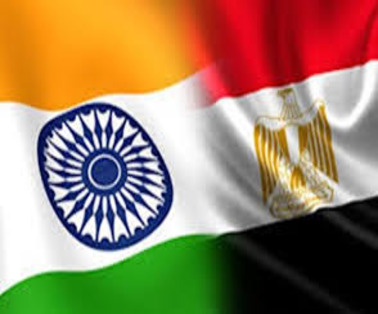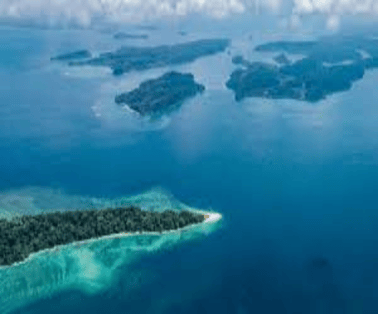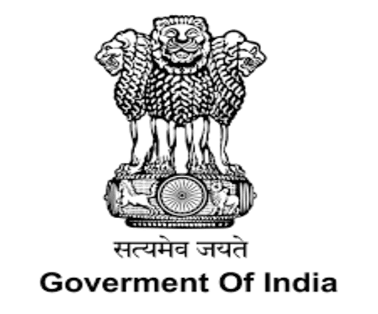India-Egypt Relations took a new turn when Prime Minister Narendra Modi landed in Egypt to kickstart his two-day visit Arriving for the first time in Cairo since he assumed the top job, Modi will be the first Indian PM to embark upon an official bilateral visit to the country since 1997.
Key Highlights of PM Modi’s Visit to Egypt
- Prime Minister Narendra Modi’s visit to Cairo built on the visit by the Egyptian leader Abdel Fattah El-Sisi earlier this year when he was chief guest at the Republic Day parade in this country.
- At the time, the two sides had agreed to elevate the bilateral relationship to a “strategic partnership”. An agreement to this effect was signed during PM Modi’s visit.
- The strategic partnership will have broadly four elements: political, defence and security; economic engagement; scientific and academic collaboration; and cultural and people-to-people contacts.
- The two sides also signed three pacts on agriculture, preservation of monuments and archaeological sites, and on competition law.
- Egypt has also been invited as a ‘Guest Country’ during India’s Presidency of G-20 in 2022-23.
Order of the Nile Award For PM Modi In Egypt
- The Egyptian President also honoured Prime Minister Modi with the Order of the Nile
- It is the highest civilian honour of Egypt.
- Instituted in 1915, the ‘Order of the Nile’ is conferred upon heads of states,crown princes, and vice presidents who offer Egypt or humanity invaluable services.
- Past recipients include South African leader Nelson Mandela, US President Jimmy Carter and Queen Elizabeth II among others.
India and Egypt Relations
Historical Ties Between India and Egypt
- India and Egypt have a long history of contact dating back to the time of Emperor Ashoka.
- They shared relations during the rule of Ptolemy II.
- In 2750 BCE, the Pharaoh Sahuresent ships to peninsular India.
- Mahatma Gandhi and Egyptian revolutionary Saad Zaghloulhad a common goal of independence from British colonial rule.
- Diplomatic relations were established in 1947, and a friendship treaty was signed in 1955.
- India condemned the attack on Egypt during the 1956 Suez Crisisand tried to mediate
- Both countries were founding members of the Non-Aligned Movement (NAM) in 1961.
India and Egypt Economic Relation

India and Egypt Defense Cooperation
- The two Air Forces collaborated on the development of fighter aircraft in the 1960s, and Indian pilots trained their Egyptian counterparts from the 1960s until the mid-1980s.
- Both the Indian Air Force (IAF) and Egyptian air force fly the French Rafale fighter jets.
- In 2022, a pact was signed between the two countries that have decided to also participate in exercises and cooperate in training.
- The first joint special forces exercise between the Indian Army and the Egyptian Army, “Exercise Cyclone-I” was completed in January 2023 in Jaisalmer, Rajasthan.
Why Have India And Egypt Rekindled Their Strategic Ties?
- Since 2014, India has sought to engage with West Asian countries.
- The reasons: India wants to draw huge amounts of capital from Gulf nations, curtail religious extremism by supporting moderate countries in the region while encouraging social reforms, and participate in the security politics of the area.
- And in order to do all this, India has realised that Egypt is a key player.
- The country has remained fairly moderate over the years, shares strong ties with the UAE and Saudi Arabia
- It is located at a crucial geo-strategic location — 12 per cent of global trade passes through the Suez Canal.
- Therefore, the bilateral relations between Delhi and Cairo have once again taken centre stage.
- Meanwhile, Cairo wants India’s help to tackle its battered economy.
- The outbreak of the COVID-19 pandemic coupled with the implications of the Russia and Ukraine war has worsened its financial woes.
- Inflation in the country is at a five-year high of over 30 per cent and it has approached the International Monetary Fund (IMF) for the fourth time in six years for a bailout.
Importance of Egypt For India’s Foreign Policy
- Egypt’s location, specifically the presence of the Suez Canal, plays a crucial role in international trade.
- The canal serves as a major transportation link, handling a significant portion of global trade. It provides India with access to both European and African markets, making it an important trade hub.
- India can benefit from Egypt’s position as a hub for production and re-export, particularly in the Arab world and Africa.
- Egypt is a significant supplier of crude oil and natural gas to India. As one of the major importers of Egyptian petroleum products, India relies on Egypt as a reliable partner in fulfilling its energy needs.
- India considers Egypt as an important partner in navigating regional dynamics and expects support from Egypt as a responsible Arab power.
- India views Egypt as a friend within the OIC and values its moderate stance, which can help foster understanding and cooperation between India and other OIC member nations.
To Download Monthly Current Affairs PDF Click here
Get Inspiration from CLAT 2025 Topper
Click here to get a free demo
Everything About CLAT 2025
India-Egypt Relations FAQs
What agreements were signed during PM Modi’s Egypt visit?
India and Egypt signed agreements on defense cooperation, agricultural collaboration, preservation of monuments, and competition law.
What is the significance of the Order of the Nile awarded to PM Modi?
The Order of the Nile is Egypt’s highest civilian honor, awarded to PM Modi for his contributions to global peace and strengthening India-Egypt ties.
How has India-Egypt defense cooperation grown?
India and Egypt have strengthened defense ties through joint military exercises, including the “Cyclone-I” special forces exercise, and collaborations on fighter jet technology.
What role does the Suez Canal play in India-Egypt relations?
The Suez Canal is a critical trade route, connecting India to European and African markets. It makes Egypt a vital partner for India in global trade and energy security.
What is the strategic partnership between India and Egypt?
The strategic partnership includes four key areas: political, defense and security, economic engagement, and cultural exchange, aimed at boosting bilateral cooperation.



